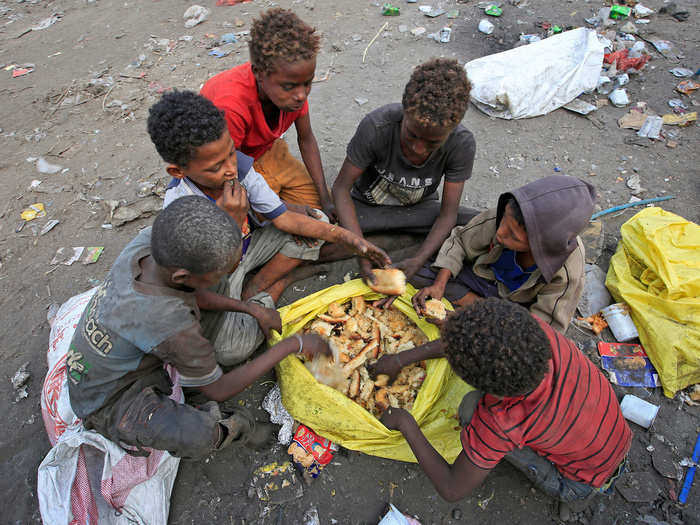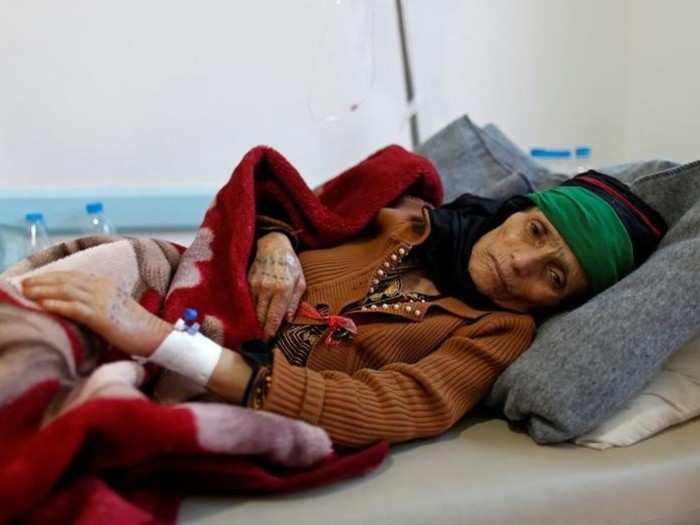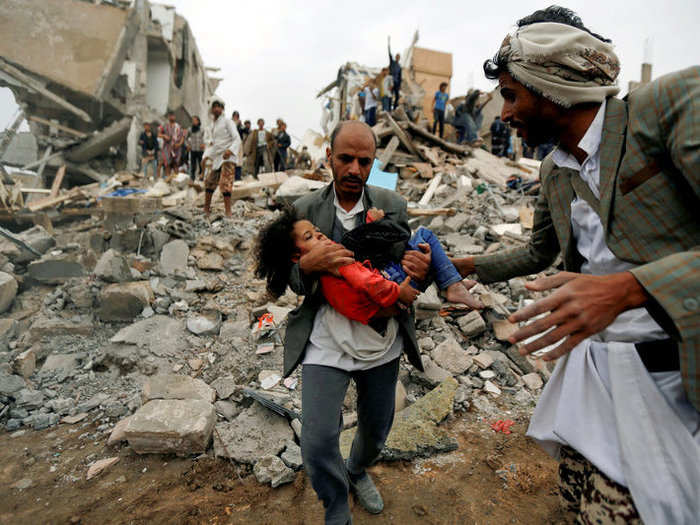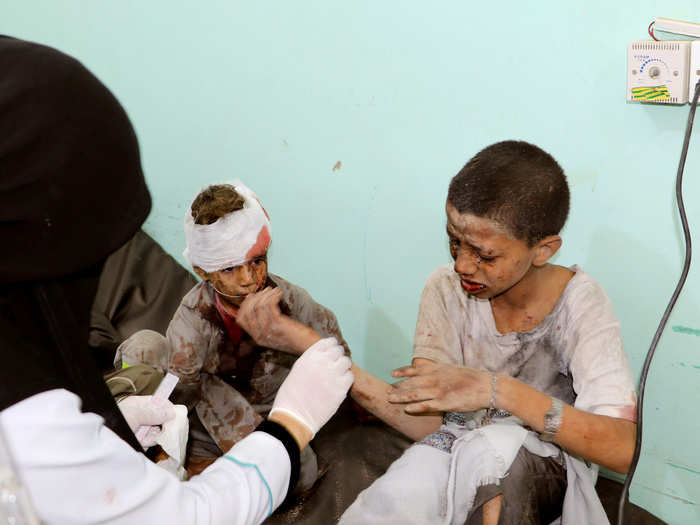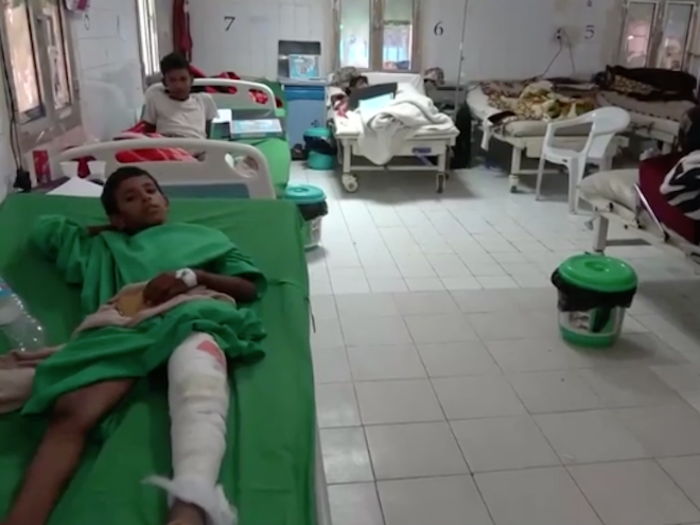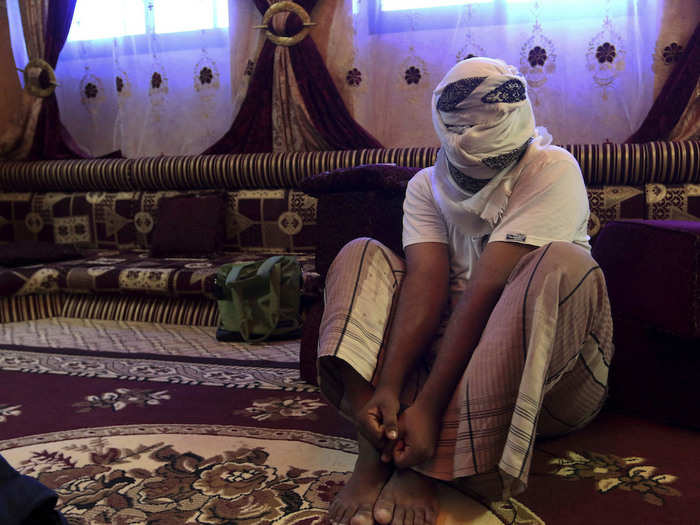17.8 million people are food insecure, and approximately 8.4 million civilians are on the brink of famine.
There have been 1,115,378 suspected cases of cholera between April 2017 and July 2018, with 10,000 new cases reported every week since June.
Indiscriminate airstrikes, which could amount to war crimes, have killed and wounded thousands of civilians.
In fact, the number of dead and wounded civilians from coalition airstrikes vary widely according to different organizations.
Since March 2015, airstrikes have killed 6,660 civilians and wounded more than 10,000, according to the UN.
Similar figures have been reported by other organizations, but these rough figures haven't been updated for years due to the nearly impossible task of recording death tolls in such a conflict zone.
The Washington Post reported in August that one independent estimate put the death toll from airstrikes and combat at 50,000.
Source: United Nations
Such examples of indiscriminate airstrikes are the Saudi-led coalition airstrike in August that hit a school bus, killing 43 and wounding 63, most of whom were children.
Or another Saudi-led coalition airstrike in April that hit a wedding in Hajjah, reportedly killing 20 civilians and wounding 30 more. The strike also killed the bride, and wounded the groom.
The United Arab Emirates, which is also a major player in the coalition, has been accused of arbitrarily detaining, disappearing and torturing people, even children, thought to be political opponents or security threats.
In June 2017, the Associated Press documented at least 18 secret prisons across southern Yemen in which the UAE and its Yemeni allies routinely tortured detainees.
Former detainees told the AP that they were beaten, forced into shipping containers covered in feces for weeks, sexually assaulted, and tied to a spit called a "grill" in which they were spun around in a circle.
The UAE denied has denied the allegations. The US also admitted to interrogating detainees, but denied any knowledge of torture and abuse.
The Houthis, on the other hand, have also been accused of several human rights abuses, including indiscriminate missile attacks, using child soldiers and more.
Source: Human Rights Watch, Associated Press

